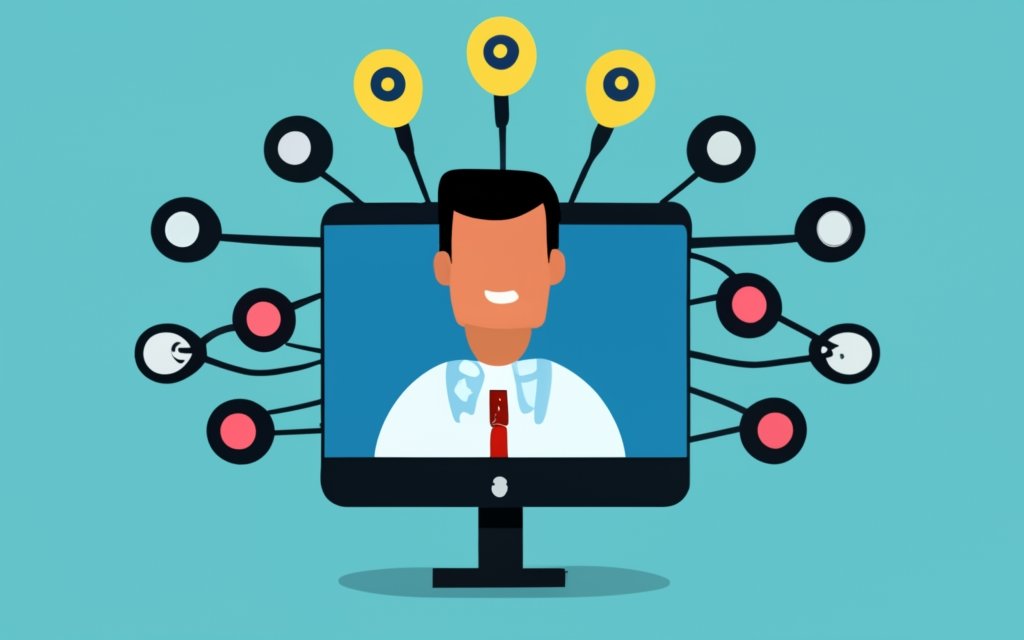Economic Shifts Loom as Spyware Feeds the AI Beast

The intricate relationship between digital surveillance and artificial intelligence (AI) is emerging as a central concern in 2023. This dynamic is not only reshaping industries but also redefining work ethics and challenging economic paradigms.
The Digital Panopticon

The modern workplace, traditionally a hub of human collaboration and interaction, is undergoing significant transformation. Electronic monitoring tools, initially introduced to enhance efficiency, have evolved. They now channel vast amounts of data into emerging AI systems, shaping their evolution.
Eleanor Martinez, a senior researcher in AI and data ethics at the Stanford Institute of Technology, commented on this shift. “Spyware’s role in our workplaces has evolved beyond mere oversight. We’re witnessing an industrial-scale data extraction process. This data is influencing AI’s trajectory, with potential repercussions for job markets, economic structures, and societal norms.”
The implications of this are vast. As AI systems become more sophisticated, there’s potential for increased automation in various sectors. While this promises efficiency, it also raises concerns about job displacement and the future of human roles in these industries.
Navigating the Ethical Minefield
The fusion of spyware and AI has introduced a myriad of ethical concerns. The digital realm is now a battleground, with debates raging over issues of consent, the potential misuse of data, and the broader implications for individual privacy. These concerns are resonating with the general public, drawing attention from individuals across various sectors.
Marcus O’Donnell, a seasoned data strategist, offers a counter-narrative. “Technological advancements have historically been met with a mix of excitement and apprehension. While the concerns surrounding privacy and data usage in the age of AI are undoubtedly valid, we’re also on the brink of a transformative era. This era holds the promise of streamlined workplaces, the creation of entirely new job roles, and efficiencies that were once considered unattainable.”
However, the challenges remain. Balancing the potential benefits of AI with the ethical considerations it brings forth is a tightrope walk. Stakeholders across the board, from tech developers to policymakers, will need to engage in meaningful dialogue to navigate this complex terrain.

The Global Response

Countries worldwide are taking note of the growing influence of spyware and its relationship with AI. Regulatory bodies are working tirelessly to draft policies that can strike a balance between innovation and individual rights. The European Union has been proactive, introducing stringent data protection regulations that other nations are keen to emulate.
In the United States, there’s a palpable demand for tech companies to be more transparent about their data collection practices. Legislators are pushing for bills that not only protect individual privacy but also ensure that the data collected is used ethically, especially when it comes to training AI systems.
This global response signifies a collective acknowledgment of the challenges at hand. As technology continues to advance, the need for robust regulatory frameworks becomes even more critical. These frameworks will play a pivotal role in shaping the future of the digital landscape.
A Glimpse Beyond the Horizon
The future promises even more sophisticated tools. Predictive monitoring systems powered by advanced AI algorithms are on the horizon. These systems aim not just passively to observe but actively anticipate and potentially influence employee behavior. Such advancements, while promising, also come with a fresh set of challenges and ethical dilemmas.
Grassroots movements, digital rights campaigns, and advocacy groups are gaining momentum. The call for digital rights, transparency, and ethical tech practices is echoing louder than ever. These movements are global, reflecting the universal challenges posed by spyware and AI.
Amara Singh, founder of the Digital Freedom Initiative, recently addressed tech leaders and policymakers. “Our discussions should encompass more than technology or economics. We need to address our core values and principles, considering the digital legacy we’re creating.”

The Road Ahead
The intertwining of spyware and AI will shape the future. Decisions made today will have lasting consequences, determining our workplaces’ nature, our personal data’s sanctity, and AI’s future direction.
Eleanor Martinez shared her reflections. “History is a testament to the fact that technological advancements lead to societal shifts. As we grapple with the complexities posed by spyware and AI, our collective decisions will determine our digital future. It’s a narrative still being written, and every individual, knowingly or unknowingly, plays a part.”
The choices we make now will set the trajectory for the coming decades. As AI continues to evolve, powered by data from spyware, industries, economies, and societies will need to adapt. The challenge lies in ensuring that this adaptation is both ethical and beneficial for all.



